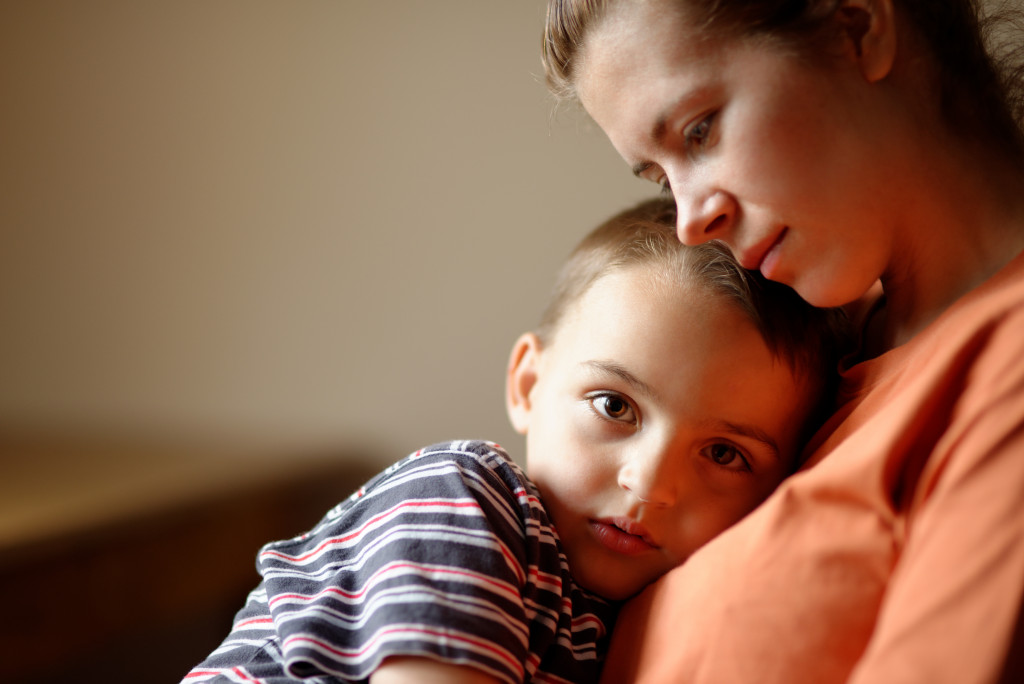- Self-esteem in children, influenced by peer comparisons and negative feedback, develops from an early age.
- Bullying, academic struggles, childhood experiences, and clothing choices can impact a child’s sense of self-worth.
- Parents can foster a child’s self-esteem by emphasizing strengths and accomplishments over peer comparisons and offering positive reinforcement.
- Addressing bullying, supporting academic struggles, and providing a safe environment are critical steps in boosting a child’s confidence.
- Empathy, supportive discipline, unconditional love, and physical touch are parenting styles that can foster self-esteem.
As parents, it is important to nurture our children’s sense of self-worth and help them build a strong foundation of self-esteem. However, various factors can negatively impact a child’s self-esteem and hinder their development. Here’s what you need to know about self-esteem among children, what affects their self-esteem, and parenting styles to improve it over time.
Self-Esteem Among Children
Self-esteem among children can develop as early as babyhood. As children grow, they are more likely to become aware of their self-worth and ability to succeed. Self-esteem differs from self-confidence, which measures how much an individual values themselves. Here are some things that affect self-esteem among children:
1. Comparison With Peers
Children often compare themselves to their peers regarding abilities, appearance, and popularity. However, this can lead to self-doubt and lower self-esteem if they do not measure up. Parents can help by encouraging their children to focus on their strengths and accomplishments instead of comparing themselves to others. Praise their efforts and progress regardless of how they stack up against others.
2. Critical or Negative Feedback
Negative feedback from parents or other authority figures can damage a child’s self-esteem. While constructive criticism is essential, overly harsh or unsupportive criticism can weaken a child’s confidence. Encouragement and positive reinforcement can go a long way toward building self-esteem.
3. Bullying and Teasing
Bullying and teasing from peers can also negatively impact a child’s self-worth. Addressing these issues with school officials and teaching your child coping mechanisms is essential. Ensure your child knows they are not the problem and that their bully’s behavior is unacceptable. Be their backbone and assure them that they are loved and worthwhile.
4. Academic Struggles
Failing in exams or struggling behind peers can cause children’s low confidence and self-image. Support them with their studies without putting pressure on high grades. Find an approach that works for them, e.g., breaking down assignments into smaller tasks, focusing on the positives, such as their efforts, and offering encouragement.
5. Early Childhood Experiences

Early experiences in a child’s childhood affect how they perceive and interact with the world around them. Children raised in abusive or neglectful homes or who have experienced traumatic events, such as the death of a loved one or illness, can suffer from low self-esteem. It is essential to seek professional help and create the safest environment possible, assuring them of their importance and worthiness of love and respect.
Clothes And Fashion
Lastly, what they were can also affect a child’s self-esteem. Children often want to look “cool” and fit in with their peers, so that they may feel pressure regarding clothes and fashion. While being mindful of budget restraints is essential, allowing your children to express themselves through clothing can boost their confidence. Going online shopping with them can also improve their autonomy when choosing their clothes. Check out an online luxury children’s occasion wear store to ensure they have the right clothes for the occasion. This can make them feel special and boost their self-confidence.
Parenting Styles to Boost Self-Esteem
Self-esteem is something that parents can help build in their children from an early age. Here are some parenting styles that can help:
Empathy And Communication
Teaching your child empathy and communication skills is essential. Encourage them to share their feelings and create a safe atmosphere for open dialogue. Empathy allows them to understand how others feel while improving their perspective. Good communication skills enable children to express themselves more effectively and articulate their thoughts.
Supportive Discipline
Discipline should be consistent, but at the same time, you must be supportive. Express your expectations clearly and explain why you are disciplining them when necessary. Built on a foundation of trust, children feel safe and secure in knowing they are loved and accepted despite their mistakes.
Unconditional Love

Unconditional love is essential to boosting self-esteem in children. Showing unconditional support helps children understand they can make mistakes without fear of judgment. Assure they are accepted as part of the family regardless of their actions and performance.
Physical Touch
Physical touch is a crucial element in boosting self-esteem in children. Cuddles, hugs, kisses, and other forms of physical contact help children feel safe and secure while conveying that they are loved.
Children’s self-esteem is a delicate subject, but as parents, you can make a positive difference in your child’s life. Understanding why low self-esteem happens and how to boost it through parenting styles and other strategies can help your child develop healthy self-confidence and self-respect. They can grow into strong, confident individuals with the right guidance and support.






